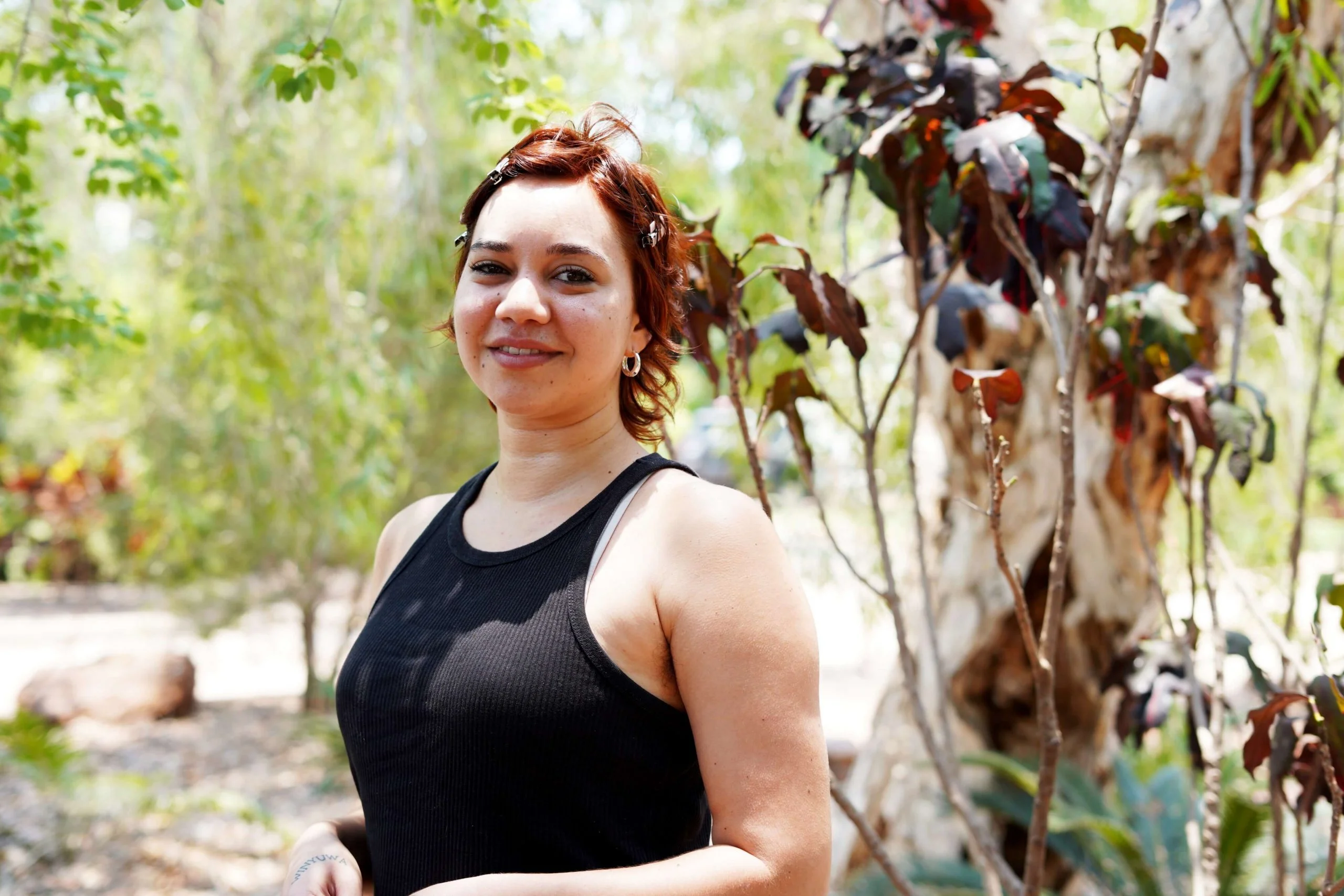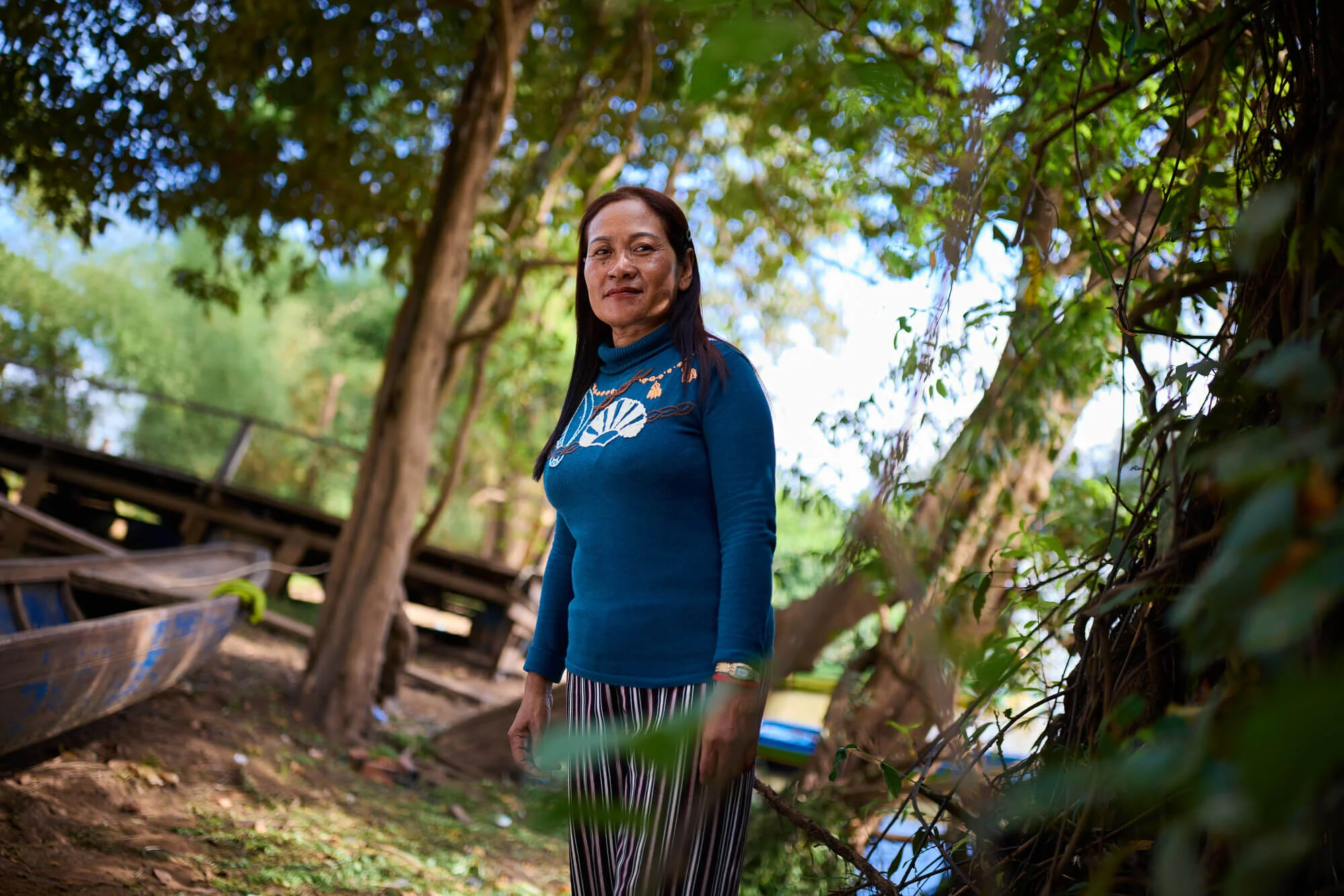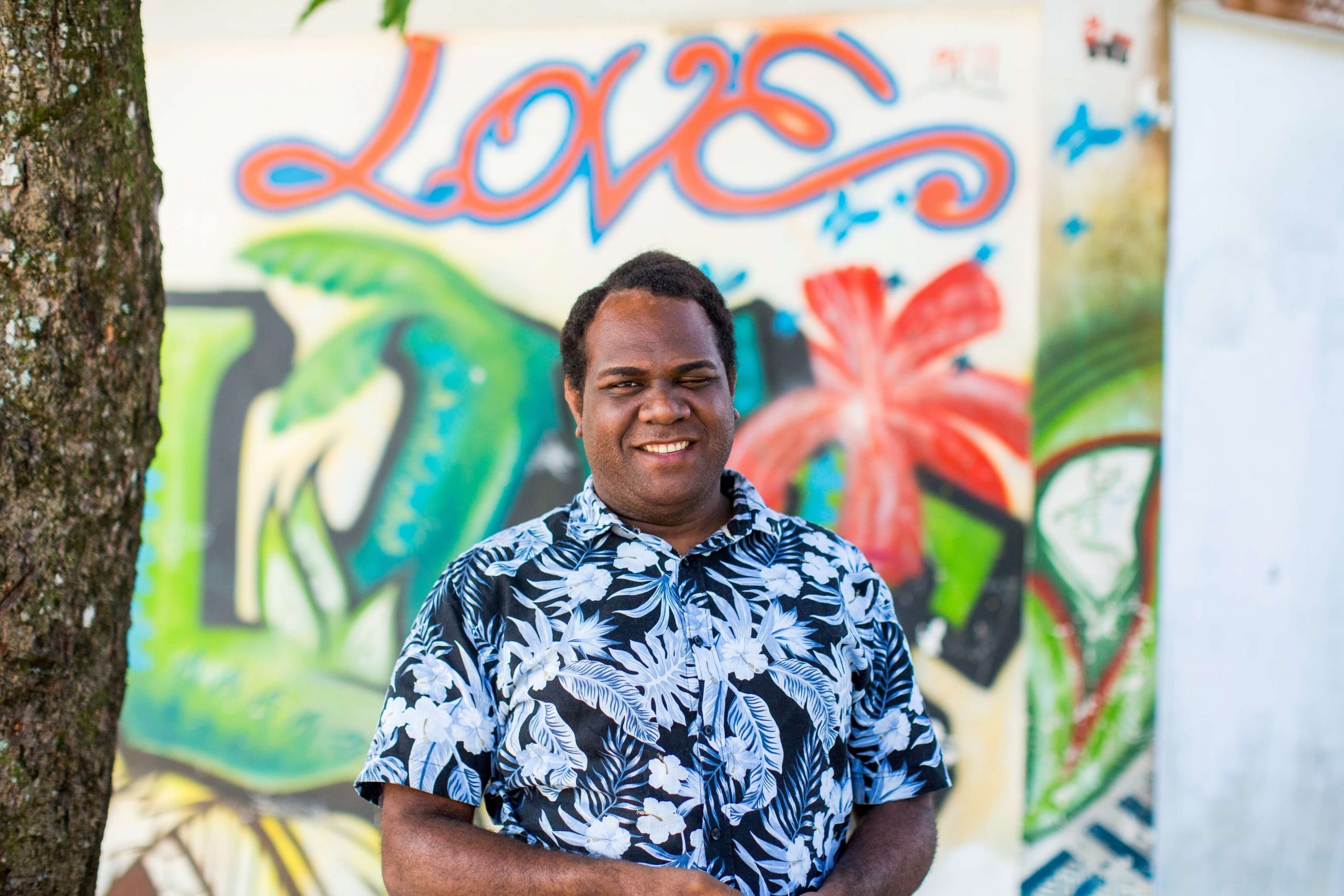“My name is Munni. I live in Moulvi Tea Estate. I work in the tea garden and I pluck leaves. I must go to work at 8am. I have my husband, mother-in-law, and three children in the family.”
- Munni lives and works in a tea plantation in Bangladesh, where she is paid $2.30 a day
- Oxfam partner Breaking the Silence runs community groups with women like Munni where they can learn more about their rights
- Since participating in the meetings, Munni feels less afraid and empowered to solve problems in the future
Munni works 8 hours a day to earn just $2.30
Before her workday begins, Munni wakes at 4am to feed the cattle, clean the house and yard, bathe, and cook for her family. She then travels one hour to get to work.
“Our times pass by doing different sorts of work from 9am to 12pm. Then we get a half-hour break to eat and we start working again after eating. After finishing in one area, we go to another. I have to work for 8 hours daily and my daily wage is 170 Taka [AU$2.30].”
“We buy things from the shop sometimes in cash and sometimes as loans … It is not enough because we have more expenses than our wages. It is very hard because we are always worried … I always feel anxious.”
![Bangladesh: Munni with her daughter. Munni is a tea garden worker and earns just 170 Taka [AU$2.30] per day. She has to take out loans in order to buy groceries and then struggles to pay these loans back. Munni attended training run by Oxfam partner organisation, Breaking the Silence, and says she has gained courage through this training. Photo: Fabeha Monir/Oxfam Bangladesh: Munni with her daughter. Munni is a tea garden worker and earns just 170 Taka [AU$2.30] per day. She has to take out loans in order to buy groceries and then struggles to pay these loans back. Munni attended training run by Oxfam partner organisation, Breaking the Silence, and says she has gained courage through this training. Photo: Fabeha Monir/Oxfam](https://www.oxfam.org.au/wp-content/uploads/2024/08/Oxfam-InuruID-369768-Bangladesh-2024-05-11-22_47_44-1-scaled.jpg)
Workers’ rights and poverty
Around the world, too many people — particularly women — are employed in poorly-regulated work environments that deepen inequality and exacerbate poverty. These workers often lack living wages, decent working conditions, security, and recognition in terms of organised representation.
This can look like increased risks of sexual harassment in the workplace, limited access to bathroom breaks or inadequate sanitation facilities to manage periods. Women who are denied a living wage are also more likely to face gender-based violence at home, and their children are at greater risk of child marriage.
Munni, Oxfam and you
Oxfam partner Breaking the Silence works directly with communities to ensure women and children are safe from violence, exploitation and abuse.
With support from people like you, Oxfam and Breaking the Silence run regular meetings where workers like Munni are made aware of their rights at work and at home, and encouraged to advocate for what they deserve.
“We attend meetings every month and we do not miss them … We have discussed that we will go to the doctor in our garden for treatment. If we do not get well, the doctor will inform the owner.”
“We have learned many things from those meetings which we did not know earlier. We learned child marriage is prohibited … We should make people aware if any women get tortured by their husbands. We will try to solve the matter otherwise we will take the necessary steps.”
“There has been some change in me. I was living through difficulties. When meetings started here, I attended those and gradually gained courage.”
![Bangladesh: Munni is a tea garden worker and earns just 170 Taka [AU$2.30] per day. She has to take out loans in order to buy groceries and then struggles to pay these loans back. Munni attended training run by Oxfam partner organisation, Breaking the Silence, and says she has gained courage through this training. Photo: Fabeha Monir/Oxfam Bangladesh: Munni is a tea garden worker and earns just 170 Taka [AU$2.30] per day. She has to take out loans in order to buy groceries and then struggles to pay these loans back. Munni attended training run by Oxfam partner organisation, Breaking the Silence, and says she has gained courage through this training. Photo: Fabeha Monir/Oxfam](https://www.oxfam.org.au/wp-content/uploads/2024/08/Oxfam-InuruID-369764-Bangladesh-2024-05-11-21_57_41-1-scaled.jpg)
“Now, there is no fear”
“Previously I had a fear inside my mind. Now, there is no fear and if anyone does not understand anything we can take the necessary steps. Now we have become aware and there has been a change at my home.”
“With the 170 Taka earnings, I have already started an insurance package. I made my husband understand and started an insurance package of 13,000 Taka [AU$166] annually.”
“I do not worry about my future and I will tackle all the problems.”
Oxfam acknowledges the European Union (EU) as the funder of this program
This work is only possible with support from people like you. Learn more about how you’re helping us alleviate poverty through our economic inequality work.
Read more stories
From supporting First Peoples to thrive and providing humanitarian aid to advocating for climate justice, gender equality and better livelihoods, here’s how we’re working towards a world without poverty.

Obby’s story
“I am a Bunuba-speaking Miluwindi-clan woman from Fitzroy crossing. I grew up there, left for school, and now I’m back living there. I wanted to come back and learn my language and my culture properly.”

Siphon’s story
“My name is Siphon. From 2017, I worked as a volunteer in the community fishery management committee. I want to protect natural resources both in the water and on land… I gather for patrolling in this lake, and sometimes in the river.”

Yannick’s story
“My name is Yannick. I work at VPride as Programs Manager and I am 30 years old. I coordinate all the activities that we run with the various SOGIE [sexual orientation, gender identity, and gender expression] members in our community.”
![Oxfam InuruID 369769 Bangladesh 2024-05-11 (1) (1) Bangladesh: Munni is a tea garden worker and earns just 170 Taka [AU$2.30] per day. She has to take out loans in order to buy groceries and then struggles to pay these loans back. Munni attended training run by Oxfam partner organisation, Breaking the Silence, and says she has gained courage through this training. Photo: Fabeha Monir/Oxfam](https://www.oxfam.org.au/wp-content/uploads/2024/08/Oxfam-InuruID-369769-Bangladesh-2024-05-11-1-1-scaled.jpg)